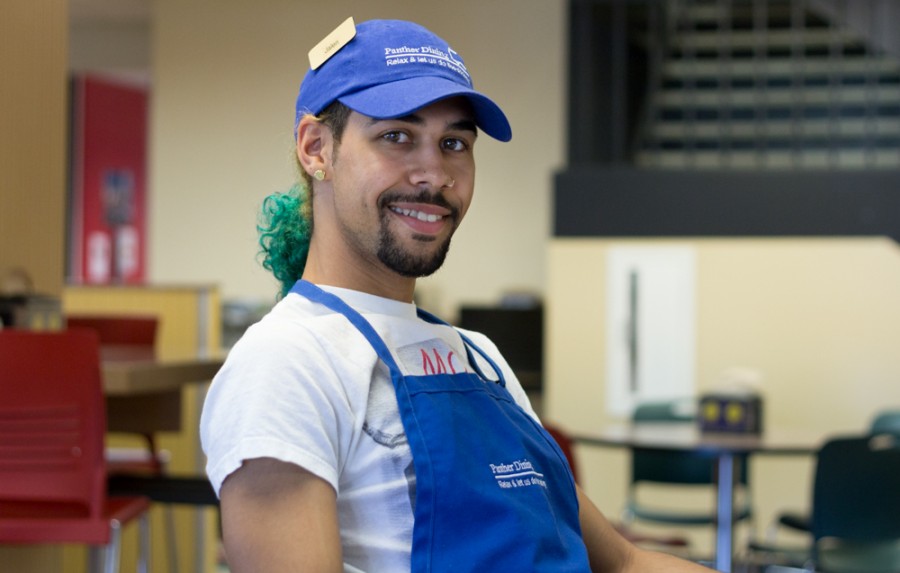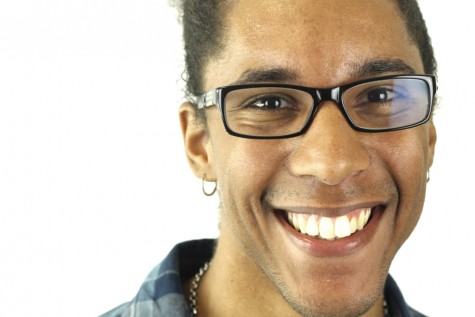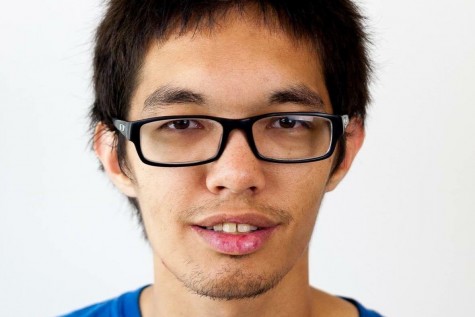LGBTQA racial minorities share stories, struggles
Jalen Washington, a sophomore accounting major, said he was most concerned with coming out as gay to his family.
October 2, 2014
Editor’s note: In observance of Lesbian, Gay, Bisexual, Trans, Queer and Ally History Month, this is the first of two articles profiling people on Eastern’s campus who identify as one of those letters.
Looking back, he said he had moments when he hated who he was and would cry wishing it were not true.
Jalen Washington, a sophomore accounting major, is openly gay and always knew.
“I was born this way, (but) I would fight it off,” Washington said.
Washington said he dated women as a “cover,” but when he was in high school he met fellow gay people on a retreat with students in his class, which was an eye-opener. He said he started making friends, dated one and then came out to himself.
“This is me,” Washington said.
However, he said his biggest concern was his family’s reaction. Washington said his family found out when he was in his room and his father walked in. He said there was an awkward atmosphere and he had a feeling that was the day they would find out.
“Are you attracted to guys?” Washington’s father had asked, and he said he was stunned speechless at the brazen question.
“I started crying, and I said yeah,” Washington said.
Washington told his father that he was bisexual instead of gay because of the connotation of it being easier. To Washington’s surprise, his father was accepting of him and even made a joke about the situation.
He said his brother was the first to know of his orientation, which garnered a couple days of silent treatment, but his brother eventually came around and their relationship became closer. Washington said his mother came home crying and was more upset that he never told her first; however, his grandmother has an issue with his sexuality.
“If you can’t accept me you don’t deserve my time,” Washington said.
Prior to coming out, Washington had more male friends, but once he declared to everyone who he was, the phone calls and texts stopped. Washington would hardly see them at first, but as they became more comfortable around him, he started to make male friends again.
“At the end of the day I’m still me,” Washington said.
Aside from being gay, Washington is African-American and Portuguese, and with that comes other challenges.
He said being himself was never an issue around black women, but the men were always weary in his presence. Washington said many guys would stare at him uncomfortably and assume because he is gay he would possibly make a pass at them.
“Just because I like boys, doesn’t mean I like you,” Washington said.
Homosexuality has always been present within the black community, but it is a topic that is often swept under the rug and seldom discussed.
“(There’s) so much we don’t talk about and it’s destroying our community,” said Yolanda Williams, a gateway advisor.
Williams is a triple minority, as she is an African-American female lesbian.
When she was growing up she had no idea that she was gay; she said growing up in a black community did not offer a chance to discuss the topic.
“We didn’t talk about gay issues or gay people,” Williams said.
She said the first gay people she witnessed were two white gay males walking down the street together in downtown Chicago.
Williams said she officially came out to herself when she was 27 and then told her mother through text. She said both her mother and grandmother took it well, which worked for her.
Williams, who came out to many students, faculty and staff members last year during a town hall meeting, said it was unintentional.
“I didn’t schedule that, but at the time it needed to be said,” Williams said.
Homosexuality within racial-minority communities is a hushed topic with roots within religion because African-Americans are traditionally a highly religious community, Williams said.
Williams said some black families now internalize the subject and question their own parenting skills as to how or why their child turned out gay. However, with the internalizing and ignoring comes denial.
She said it’s always the uncle’s best friend or the aunt’s roommate; they are rarely referred to as the boyfriend or girlfriend.
Williams said the issues of denial, religion and family acceptance are all many of the stigmas and challenges of gay racial minorities. She said some must tread carefully walking on the balance and weighing the option of coming out or not.
“How do you grow up knowing it’s OK if nobody talks about it?” Williams said.
Roberto Hodge can be reached at 581-2812 or rlhodge@eiu.edu.






































































